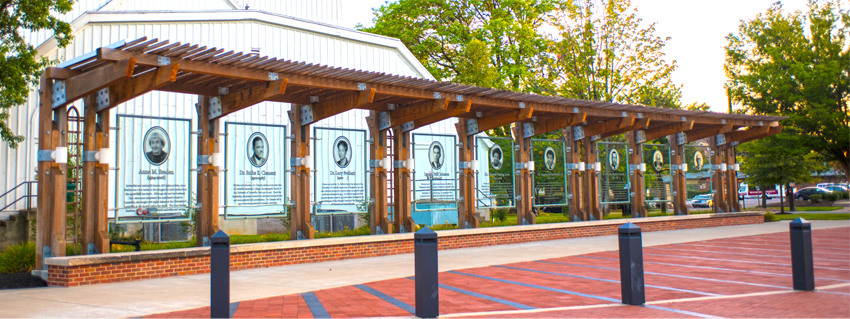Charles H. Parrish, Jr. Freedom Park
Dedicated to advancing understanding of Louisville’s history of race relations and the movement for equality locally and at UofL.

Welcome to Charles H. Parrish, Jr. Freedom Park.
Created in 2012 by the University of Louisville, Charles H. Parrish, Jr. Freedom Park commemorates the history of African Americans in Louisville and the commonwealth in the context of the universal struggle for freedom, More specifically, it explores Louisville’s history in the movement for civil rights for all its citizens.
Freedom Park was the brainchild of J. Blaine Hudson (1949-2013), an historian and Louisville native who served as dean of the university’s College of Arts and Sciences from 2005 to 2012. The site of the park had long generated controversy by the presence at its south end of a city-owned monument constructed in 1895 to honor the Confederate soldiers who died during the Civil War. Since the University began admitting African American students in 1951, there have been periodic protests of the monument. The idea of Freedom Park came about as a means to provide a more complete historical account. The sculptures in the park enable visitors to follow Louisville’s progression from a city of slaveholders and Black settlements in the 1750s to its current status as a diverse metropolitan area still struggling to enact equal rights for all its residents.
The city-owned Confederate monument was removed in 2016. It now resides in Brandenburg, Ky.
Charles H. Parrish, Jr. Freedom Park tells the story of African Americans in Louisville and the Commonwealth through a series of 10 information obelisks, each focusing on an era or topic specific to Louisville, and 10 glass panels detailing the contributions of some of the giants of Louisville’s civil rights struggle.
